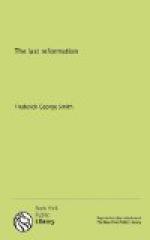In order to understand the place which the work of reformation has in the plan and purpose of God respecting his church, we must carefully observe the twofold character of the apostasy. Both these phases are clearly outlined in that remarkable prediction of Paul to which reference has already been made, recorded in the second chapter of Second Thessalonians. The first phase, described as “a falling away,” was that decline from true Christianity which we have considered in the preceding chapter as the Corruption of Evangelical Faith. The second phase was the rise and development of a foreign element which was from its beginning “the mystery of iniquity” and which in certain respects usurped the true place of Jehovah himself in spiritual worship in the temple of God. This phase now demands our special attention.
Since the sixteenth century reformation a large part of the Christian world has renounced the right of the pope to sit as the supreme earthly head of the church, but we shall show later that these same modern Christians who have sought the restoration of the evangelical faith have not discarded the essential elements of the papal hierarchical system, but have perpetuated them in their own ecclesiastical constitutions, and that this relic of medievalism is the chief barrier to a reunited Christendom and the restoration of pure apostolic Christianity. It is highly essential, therefore, that this phase of the apostasy be carefully considered. It is not enough to reject the pope and his college of cardinals. If that tree, as judged by its fruits, is an “evil” tree, we should seek to know where, when, and by whom the evil seed from which it grew was first planted, and then reject it from the roots up. Then, and not until then, can the work of reformation be made complete. We have, therefore, to trace the rise and development of what may be forcibly expressed by the apparently pleonastic phrase human ecclesiasticism.
[Sidenote: Divine authority vs. positional authority]
We have already seen that in the church, as originally constituted, organization, authority, and government proceeded from the divine and not from the human. The agents whom Christ used in performing his work and in overseeing his church were called and endowed by the Holy Spirit, and this divine endowment was the real basis of their authority and responsibility. Paul’s authority and responsibility as an apostle, for example, was not positional authority, or authority proceeding from a certain position to which he had been appointed or elected. His authority was divine, and out of that divine authority grew his positional responsibility as the “apostle of the Gentiles.” Over and over he affirmed that he was an apostle, “not of men, neither by man, but by Jesus Christ” (Gal. 1:1). On the same principle the position, work, and responsibility of all the members of the body of Christ grew out of the gifts and qualifications possessed by them, and thus the church was divinely organized and divinely governed.




